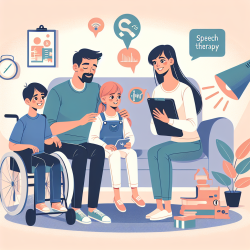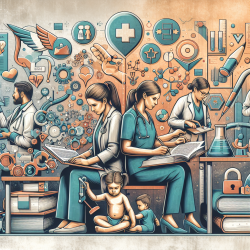Introduction
The convergence of COVID-19, tuberculosis (TB), and HIV presents a formidable challenge to health services in sub-Saharan Africa. The recent research article titled "Minimizing the impact of the triple burden of COVID-19, tuberculosis and HIV on health services in sub-Saharan Africa" provides crucial insights into this issue. This blog post aims to empower practitioners by discussing key findings from the study and offering actionable strategies to improve health outcomes in the region.
Understanding the Triple Burden
The study highlights the compounded impact of COVID-19 on existing TB and HIV epidemics in sub-Saharan Africa. These three diseases collectively strain the already limited health resources, leading to increased morbidity and mortality. The research underscores the need for a comprehensive approach to address these intertwined health challenges.
Key Findings and Implications
Several important findings from the research can guide practitioners in mitigating the impact of these diseases:
- Resource Allocation: The study emphasizes the importance of optimizing resource allocation to ensure uninterrupted delivery of TB and HIV services during the COVID-19 pandemic.
- Data Collection and Reporting: Enhanced data collection and reporting mechanisms are crucial for understanding the epidemiology of these diseases and tailoring interventions accordingly.
- Community Engagement: Strengthening community engagement and education can help in reducing stigma and improving access to health services.
Actionable Strategies for Practitioners
Practitioners can implement several strategies to address the challenges highlighted in the research:
- Telehealth Services: Expanding telehealth services can help maintain continuity of care while minimizing exposure to COVID-19.
- Integrated Care Models: Implementing integrated care models that address TB, HIV, and COVID-19 simultaneously can improve efficiency and outcomes.
- Community-Based Interventions: Leveraging community-based interventions can enhance service delivery and patient adherence to treatment regimens.
Encouraging Further Research
While the study provides valuable insights, it also highlights gaps in data, particularly concerning pediatric populations and the socio-economic determinants of these diseases. Practitioners are encouraged to engage in further research to fill these gaps and develop evidence-based interventions.
Conclusion
By implementing the strategies outlined in the research and continuing to explore new avenues for improvement, practitioners can significantly mitigate the impact of the triple burden of COVID-19, TB, and HIV in sub-Saharan Africa. Together, we can work towards a healthier future for all.
To read the original research paper, please follow this link: Minimizing the impact of the triple burden of COVID-19, tuberculosis and HIV on health services in sub-Saharan Africa.










